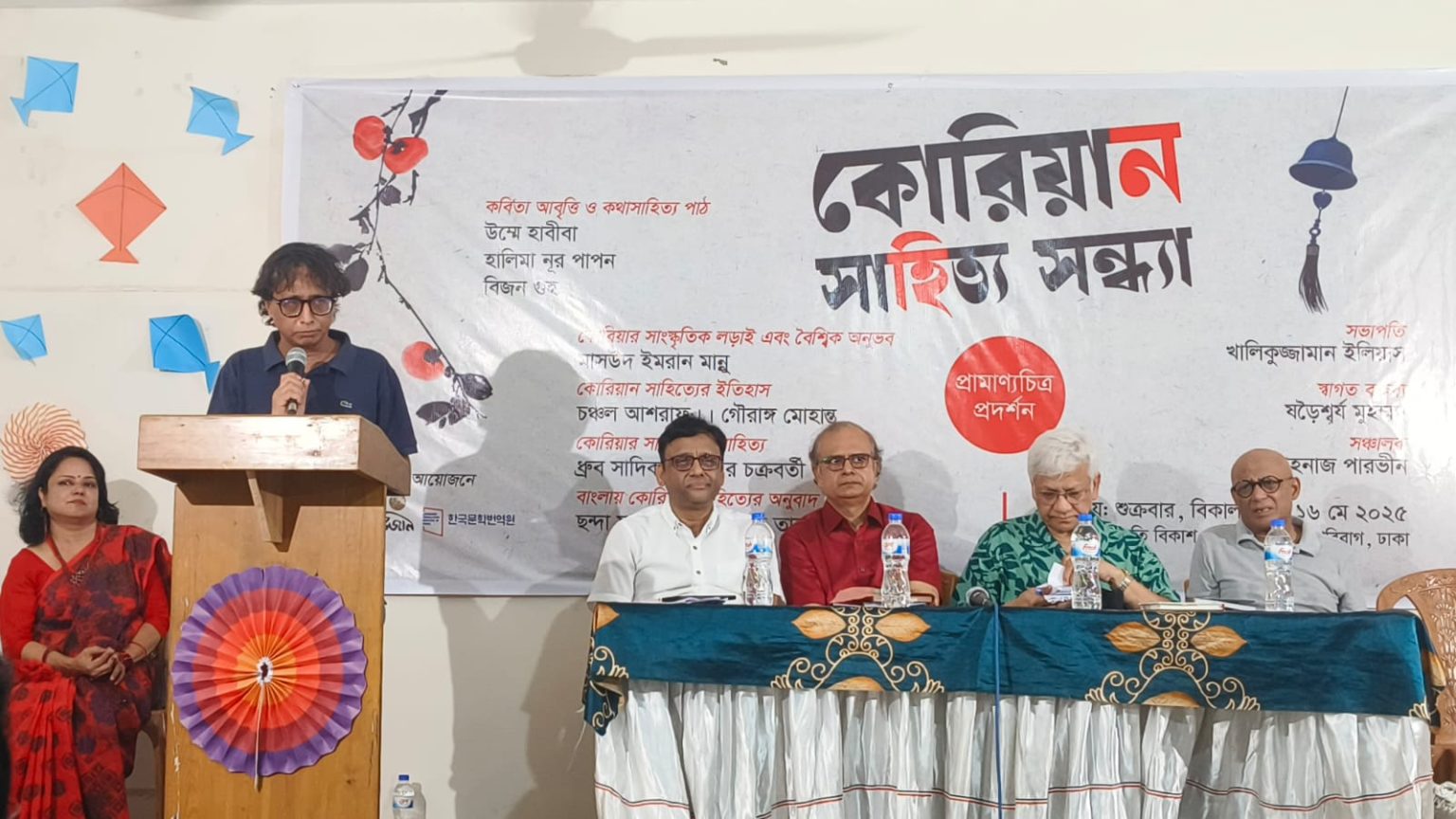“There isn’t a single writer in the world who has earned equal recognition in two languages. Even those who could write in two languages eventually had to settle into one. Our renowned novelist Syed Waliullah also wrote in French, but only his Bengali works have endured. The Bengali nation is essentially monolingual.”
These remarks came from eminent educationist and translator Khalikuz Zaman Elias.
“Even after all these years of independence, we still do not have a language policy. This should have been in place long ago. It is essential for a country to have a unified language policy. We have yet to build a multilingual population. It may take generations, but we must begin now, even if late,” he said speaking at a Korean literature evening held on Friday in the capital’s Paribagh.
Organised by Ujan Publications with the support of South Korea’s LTI Korea, the event focused on Korea’s cultural resistance and global impact.
Archaeologist Masud Imran Mannu said, “Korea’s cultural struggle is a major global event. There is much for us to learn from it. Their literature inspires their cinema, and their cinema shapes their webtoons and animation. There is a strong coherence across their cultural expressions—something our literature, cinema, music, and theatre lack.”
He further noted that Korean webtoons and animations creatively re-present what audiences already love. “This is especially evident in their popular culture products. Their heroes aren’t muscle-bound like those in Hollywood or Bollywood. They come from ordinary backgrounds, but are portrayed in extraordinary ways. Even the feminine characters in K-pop represent alternative narratives.”
Poet, essayist, and translator Kumar Chakraborty discussed modern Korean literature, highlighting poets like Kim Sowol and Ko Un, and fiction writers like Jeong Chan and Han Kang. He noted that economic and military power alone don’t build lasting influence—cultural soft power, such as literature, music, and cinema, plays a more enduring role.
The literary history of Korea was explored by poets and essayists Chanchal Ashraf and Gouranga Mohant. Chanchal Ashraf said Korea has drawn lessons from its past—its oppression, colonial trauma, and civil war—and transformed those into cultural memory with enduring emotional appeal. “Such work is crucial for any nation.”
Gouranga Mohant added that Korea’s early literature was influenced by Buddhism and Chinese and Japanese philosophy, but modern Korean literature has absorbed Western materialism and symbolism. Just as Bengali literature began with the Charyapada, Korean literature began with Buddhist texts. In modernity, they have turned those elements into a humanistic resource.
Poet and artist Shamsed Tabrejee spotlighted Korean works translated into Bengali. “Translation is itself literature. To translate well, one must know their own language deeply, then give attention to the other. Unfortunately, our universities and academies often neglect contemporary literature and writers. We need to expand the space for discussion and critical thinking.”
In his welcome remarks, writer and journalist Sroishwarya Muhammad showcased the Korean literary books published by Ujan Publications, including stories, poems, novels, and even books on K-pop. A small exhibition featured these works.
The evening began with poetry recitations by Bijon Guha and Umme Habiba, and a prose reading by Halima Nur Papon. The event was moderated by cultural activist Dr. Shahnaz Parvin. It concluded with a documentary screening where noted educators, writers, poets, journalists, and general readers shared their experiences of reading Korean literature and expressed their thoughts on Korean culture.


